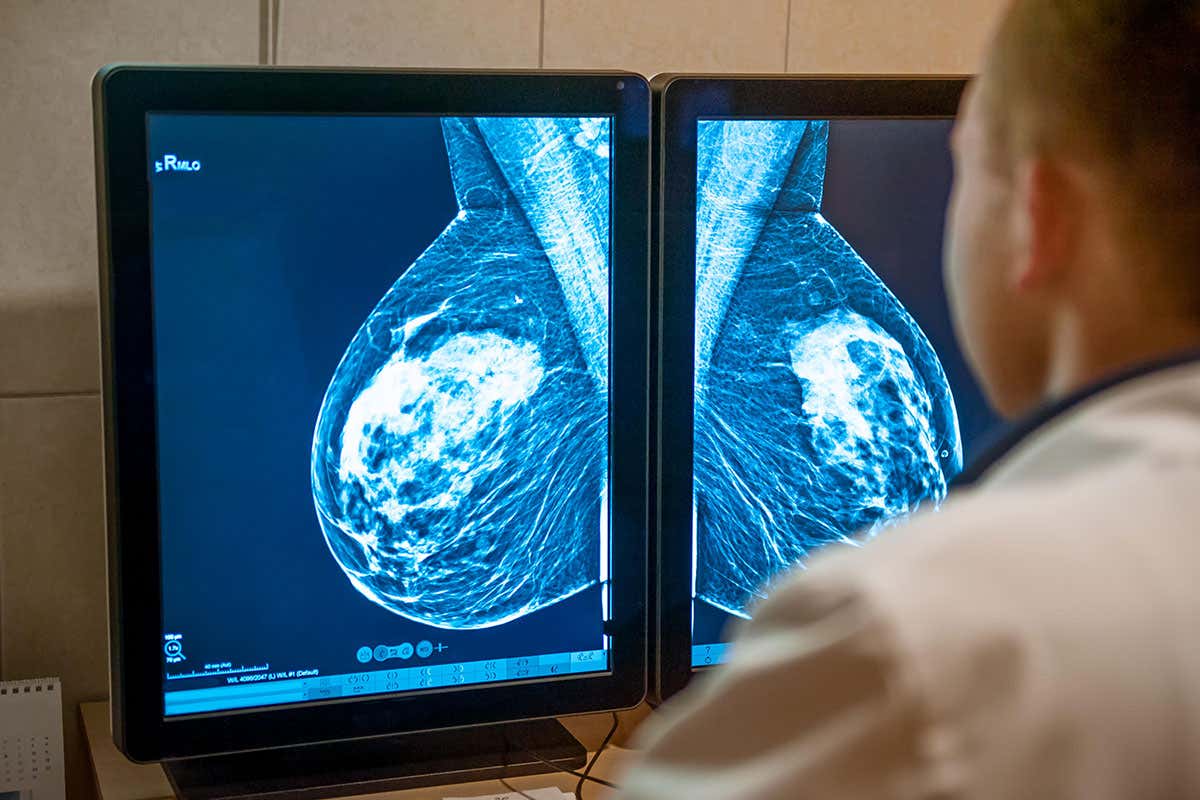
Oksana Krasiuk / Alamy Stock Photo
Many cancer treatments work very well in the beginning only to fail later as tumours evolve resistance. But a new generation of therapies are being developed to prevent this.
One, called BOS172722, has been shown in animal studies to restore the effectiveness of paclitaxel, the main chemotherapy used to treat so-called triple-negative breast cancer. “It’s the deadliest breast cancer,” says team leader Spiros Linardopoulos at The Institute of Cancer Research in the UK, who has just published a study describing the approach.
A human trial is already underway. If it proves effective, the trial could be expanded to include lung and ovarian cancers, Linardopoulos says.
Advertisement
Like other chemotherapies, paclitaxel works by hurting fast-dividing cells. It interferes with the process of cell division, resulting in chromosomal abnormalities that often kill cells. But the cells that do survive can end up becoming resistant, meaning the drug no longer works.
“Resistance is pure Darwinian evolution,” says Linardopoulos. So like many cancer researchers, he has been trying to find new drugs, or new ways of using drugs, that prevent resistance.
BOS172722 also interferes with cell division but in a different way. It binds to and blocks a protein called MPS1 that plays a key role in division. The combination of the two drugs together causes such severe chromosomal abnormalities that none of the cancer cells survive. And if no cells survive, there can be no resistance.
There are some side effects, and the initial aim of the trial is to establish the maximum safe dose. But at the moment there is no effective treatment option when paclitaxel fails.
“With triple negative breast cancer still lacking in targeted treatments, we urgently need to find new options to stop more women dying,” Delyth Morgan of Breast Cancer Now, which helped fund the work, said in a statement. “This exciting study shows how well these drugs complement each other at a molecular level to destroy cancer cells.”
The Institute of Cancer Research sees drug resistance as the biggest challenge in cancer, so it is increasingly focusing on finding ways to combat evolution. It is setting up a £78 million centre for drug discovery in London that will bring together researchers from different disciplines to focus on creating anti-evolution treatments.
Journal reference: Molecular Cancer Therapeutics, DOI:
More on these topics:
